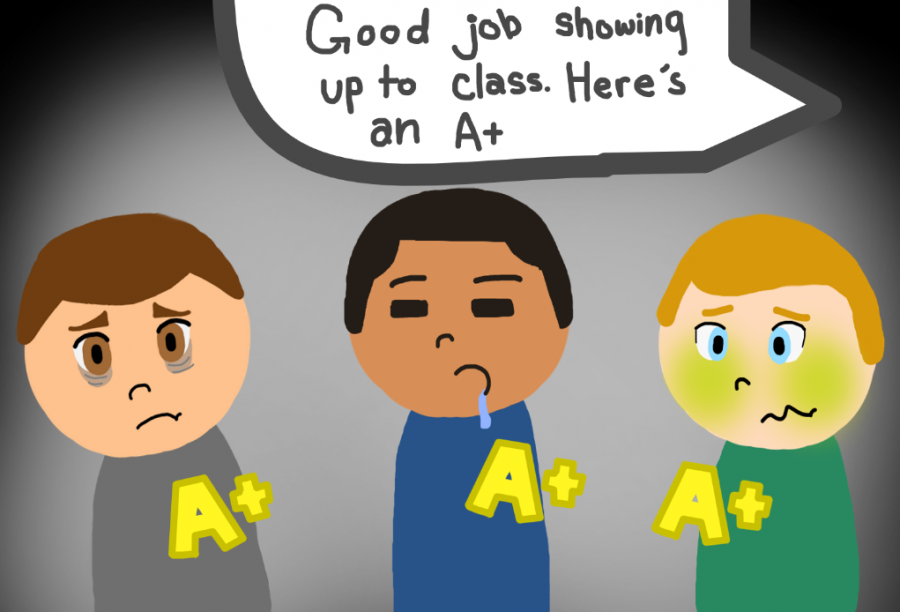OPINION: Attendance policies do not serve students
Missing class should not be that big of a deal
WSU students are grown adults and should be allowed to miss classes if they need to.
June 16, 2020
Since I began attending WSU in fall 2016, I’ve changed my degree five times and within each program I’ve been apart of — business, music, education, social sciences and philosophy – I’ve encountered a recurring theme. I, a paying adult, am policed daily to attend my courses or else I’d face failure or a dramatic loss of points.
Whether it’s for a medical reason, mental health reason, personal reason or school reason – it doesn’t matter.
I think this is utter nonsense.
Audrey Kristofferson, junior animal science major at WSU, said the attendance policies for her science labs are the strictest: if a student misses three lab sessions, they get a zero on the third (the first two being “freebies”), and if they miss a fourth they fail the lab and therefore the entire course.
As a current music student, every one of my courses has a similar two-class “freebie” system, after which the grade for the class starts to drop dramatically.
Caitlin Riley, 2018 alumna from WSU, said every course she took had a strict attendance policy, which made her college experience even more stressful.
“I passed all my classes, but it was a struggle and [there was] added stress on top of it of like, ‘Are the teachers going to notice I’m missing?’” Riley said.
Some attendance policies do, at least, make room for medical excuses, but some professors request some sort of doctor’s note.
Assuming a student could even get a same-day appointment with their doctor, they would have to pay on average $150-300 for the appointment if they don’t have insurance. Without explaining the finer details of insurance policies, some insured visits can end up costing just as much until the deductible has been reached.
“I think [requiring a doctor’s note] is completely unfair. I do not think that I need to justify my medical needs to anybody,” Kristofferson said. “Especially if I’m going through something that, maybe, a doctor wouldn’t think is a real issue.”
The Access Center will approve flexible attendance as accommodation with the proper documentation for certain conditions – however, these are not specified on their page about Flexible Attendance Accommodations.
These accommodations are not extended to notoriously long-lasting illnesses like “mono, strep throat or conjunctivitis,” as specified by WSU Regulation 72.c.3.
Excusing an absence for any reason, even for a lengthy bout of mono which can last from a couple of weeks to six months, is entirely up to the professor. Neither Kristofferson nor Riley could dictate the reason their professors use such a strict attendance policy. Both assumed it had to do with the belief that without attending every class, they could not be successful.
It should be up to the student whether they can be successful despite a missed class — not the professor.
“I felt like I could miss a class and feel like I didn’t miss anything and just look at the material online [to prepare] for the next class,” Riley said.
Personally, I’ve taken courses in which I felt my attendance was not directly related to my success. During my freshman fall semester, I got pink eye after having the flu for a horrible couple of weeks. I didn’t attend classes for a month. I got all A’s and didn’t feel behind one bit.
On the opposite side of the spectrum, I know that I need to attend my music history course every day, or I’m going to miss a mind-bogglingly large amount of information.
This brings up my final issue with the attendance policies at WSU: we are adults paying to attend this university so we should be allowed to decide which classes we need to attend to be successful.
It cost just over $10,000 for tuition alone to attend WSU this past school year. I believe wholeheartedly that if I can decide to pay over $40,000 for my education, I can choose whether I need to attend class.








